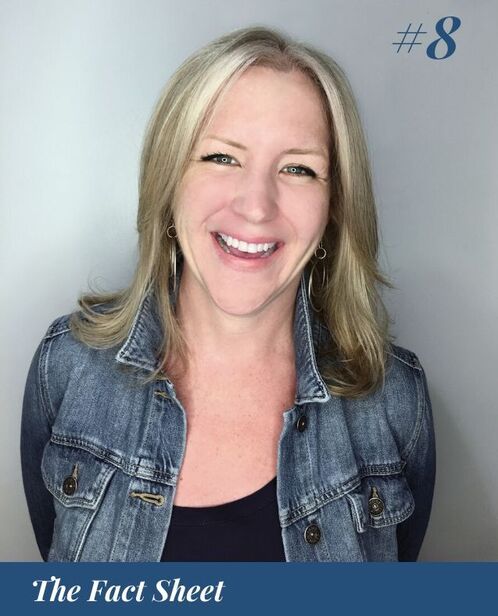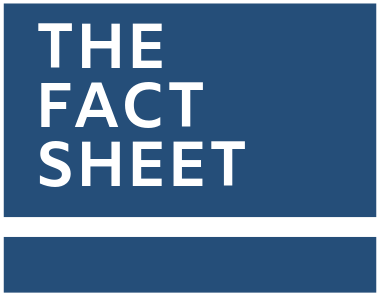|
Christine O’Neill made a career transition from marketing/advertising to personal coaching in 2018. The Hastings-on-Hudson, NY, resident chatted with me recently about the importance of coaching, how she learned to become a coach and her tips for finding one’s path. Because as she says, “Life is too short for just OK.” (Full disclosure: Christine and I are friends from our days at Kenyon College way back in the 90s – McBride Hall, yeah!)
Now, just the facts! BD: What led you to start thinking about a career change? CO: I came out of college and didn’t know what I wanted to do and kind of landed in advertising. And then I kept doing it because I really didn’t know what else to do. For all intents and purposes, I was successful. I was a Vice President and on a big account, but I really felt like something was missing. I really felt like I wasn’t a natural fit for it, and my talents weren’t being used and I really wanted to find something that was more meaningful. For me, it was not knowing what I wanted to do and knowing that there was something bigger out there for me. Not knowing how to get there was an incredible struggle in my life. It impacted everything—my happiness, my level of satisfaction and fulfillment, and it became just vital that I had to figure out what else I could and should be doing. So I reached a point where due to some personal changes in my life and professional changes at work—I often say change begets change—it shook me to the point where I said OK, this is the time where I have to make a decision and change. After first seeking therapy to figure out some of what was holding me back, that led me to career consulting, and I worked with a consultant for over a year to identify the things I most cared about, what were the skills that came naturally to me that I also loved pursuing, what did I most want and not want out of a career. We worked to define the top priorities in life and started to apply those to possible jobs. It was still a real struggle for me to come to the conclusion that coaching was what I wanted. But once I did, I realized I wanted to do something similar to what my consultant was doing. BD: It’s amazing how the most obvious path forward may not be that obvious. CO: I think one of the most interesting parts to me was when I finally said, ‘OK this is it, this is the thing that I want to do.’ That came in a couple of different ways. With my consultant I had created a prioritized list of things I wanted to have in my work, but I still couldn’t really figure out how I wanted to apply those to a career. I realized one of the ways could be coaching. It ticked off all these things on my list, and I still said, ‘No this isn’t what I wanted to be doing.’ I had cared about this problem for so long and been trying to figure out this problem in my mind for so long, it seemed too simple, not cool enough, or not crazy enough. [Coaching] is actually similar to what my father did in his career—he was in executive recruiting and then outplacement and so I learned about networking and job search strategy from him. That was something I always naturally helped friends and even colleagues with. So anyway, it was really a frustrating time for me because I felt like I had done all of this work, and I was so close but I still couldn’t come up with the thing I wanted to do. I reached a point where I was like I am going to shut it off and stop thinking about it. So I just shut down and stopped thinking about it. And I was sitting on the couch one day during the holidays, and it came to me: ‘Coaching, that’s what I should be doing.’ I had to stop thinking about it in order to allow it to come to me. That was my gut and heart talking versus my head trying to think through and solve the problem. I think we don’t allow ourselves to do that, we fight so hard to try to figure it out. And we think that if we don’t stop working toward something that we are not going to solve the problem. BD: But you still had to prove yourself as a coach, or at least get the professional credentials to become one. CO: I thought I had figured it out, and I was going to be this career coach. I found a program that I thought looked good and legitimate. I remember walking into that training the first weekend with a very specific idea of what I was going to learn. And I walked in and I thought, ‘What the hell is going on here, who are these people and what are they talking about?’ I resisted the new experience I was going through. [The program] wasn’t like me, or who I thought I was. It didn’t feel very pragmatic, and I was getting all this woo-woo stuff and thinking, ‘Are these people taking this as seriously as I am?’ I was distraught and had a conversation with another coach and trainer during that weekend, and all she said was, ‘You are exactly where you need to be.’ And honestly it was the biggest release and also an understanding of everything I was coming up against. Once I let go of that, I embraced this coaching world. I say this all the time, but I couldn’t have realized what I really wanted until I took that first step forward. Since then I realized there was a much larger journey I was on. And I heard this the other day, it’s almost like goal grief – you get the thing, the job, the house, the car, and it’s like ‘oh is this all it is?’ And you still aren’t fulfilled. It wasn’t the job change in itself, but instead the coaching journey that has led me to a far greater understanding of how to create fulfillment and joy in the day to day, the small moments, and learning to align with those things has brought me to the level of joy that I was searching for all of those years. BD: I’m guessing there are many people who have never experienced a career coach, a life coach or a management coach. I firmly believe there is immense value in coaching and have benefited from it. I think it would be great to hear from you about the power of coaching. CO: How I think about coaching is thinking about you as the client, you are the expert. You actually have all of the answers within. And people think that’s not possible, they think if they had the answers then they would be more fulfilled and happier already. The power in coaching is in helping you gain a greater understanding of who you are and the things that are most important to you and all of the ways that you’re holding yourself back from the level of success, joy, fulfillment, meaning, whatever the thing is that you are searching for. The power to me is when you start to recognize that all the reasons and excuses you have of not being able to live the life you want are just excuses, it’s the most freeing feeling. The power in coaching is in helping you create that awareness of what you really want, and realizing you can actually have it. It’s shocking to me how many of us choose to settle into a subpar or status quo existence when there is that yearning for so much more. BD: Why do you think we have these barriers that hold us back? A change can feel like this huge risk, especially when finances are involved, even when everything’s going to be fine. CO: I think it’s a mix of things. We are a culmination of our experiences, and the beliefs and messages we got as kids. All of those things define in subtle ways the way we see the world and what’s possible for us. Toney mindset is a really big one. But really it all comes down to is fear. Whatever that fear is. A lot of times it’s the fear of failing, the fear of success. If I actually am able to achieve this thing, how is that going to change my relationships, are people going to think about me differently, maybe I’ll lose something I care about, maybe I’ll lose my freedom and all of a sudden I’ll be successful and have to work 20 hours a day. The financial fear is a big one. Those are all limits, how do you know that you aren’t going to make the same amount of money? How do you know that you can’t find more fulfillment in a current job and not have to leave it? How do you know that you even have to leave your job? For me personally, doing the same thing for the next 20 years became a hell of a lot scarier than taking the risk. That’s what motivated me to make that change. BD: Something you and I discussed previously was along the lines of being curious and having fun, whether on the job or with friends and family. That really stuck with me. CO: Part of the work I do is helping people realize, what do you value, what are the things that energize? What is the energy you want to bring forth to your day? And how much fun do you want to have—why are you waiting for that fun? Figure out what brings you energy and then do more of that thing. It’s really hard when you are coming from a drained, low-energy state to be creative and think in a new way and explore something new. So little by little, follow your energy, and see how things start to open up for you. It doesn’t mean having to figure out the big thing, just take one small step forward. ##
0 Comments
Leave a Reply. |
The only social impact Q&A on the web
AboutThe idea behind The Fact Sheet is to document interesting conversations with super-interesting people. Archives
December 2019
Categories |


 RSS Feed
RSS Feed